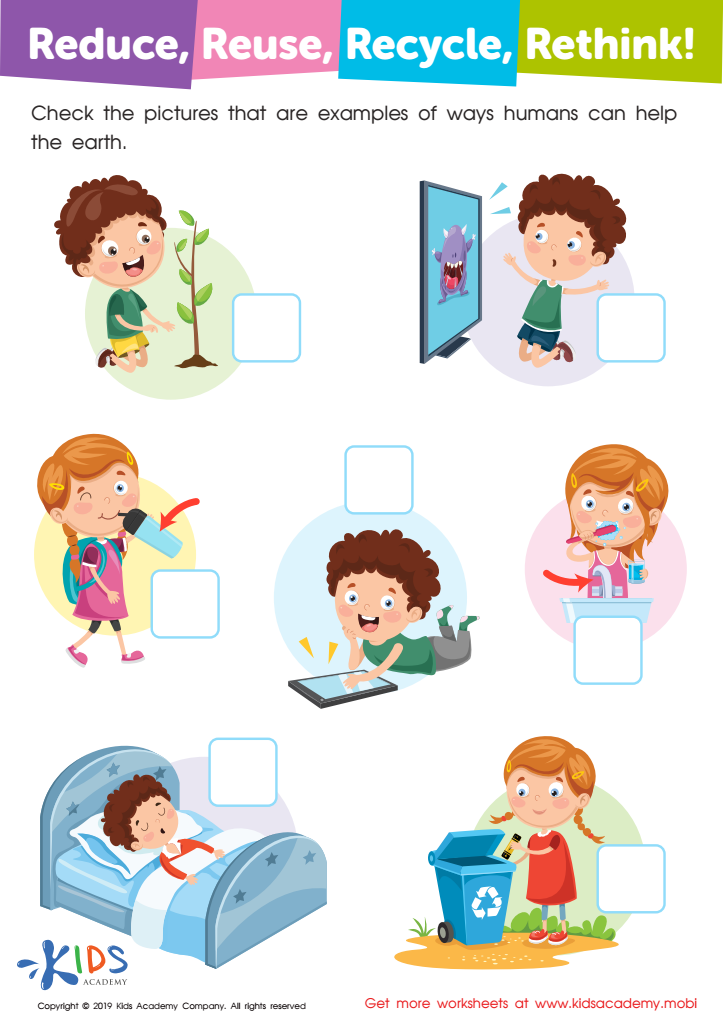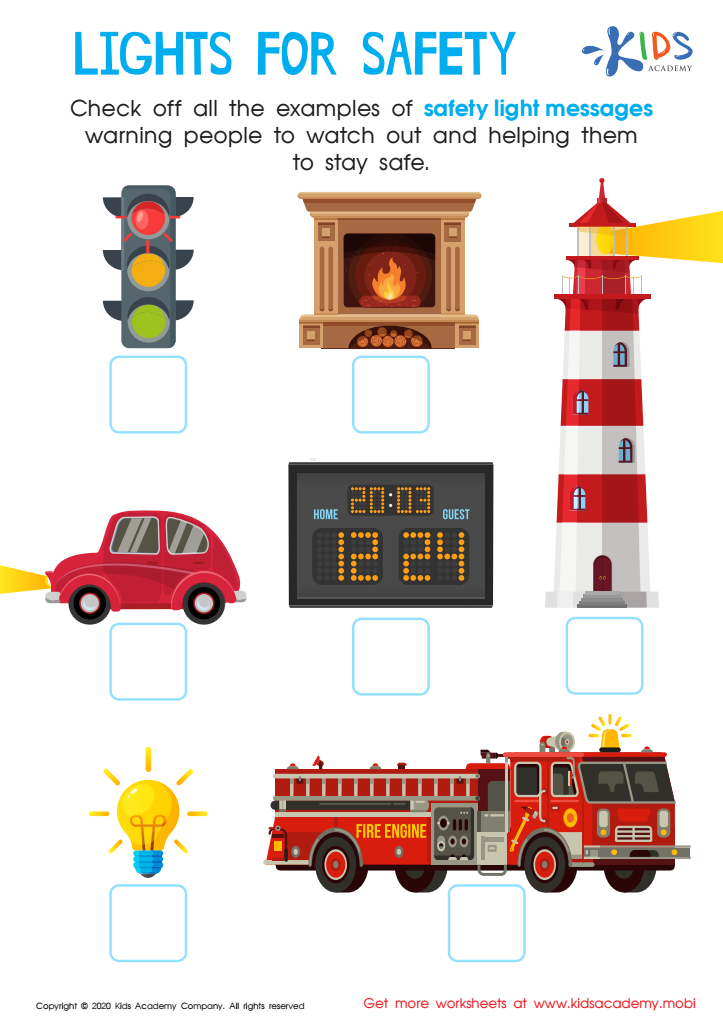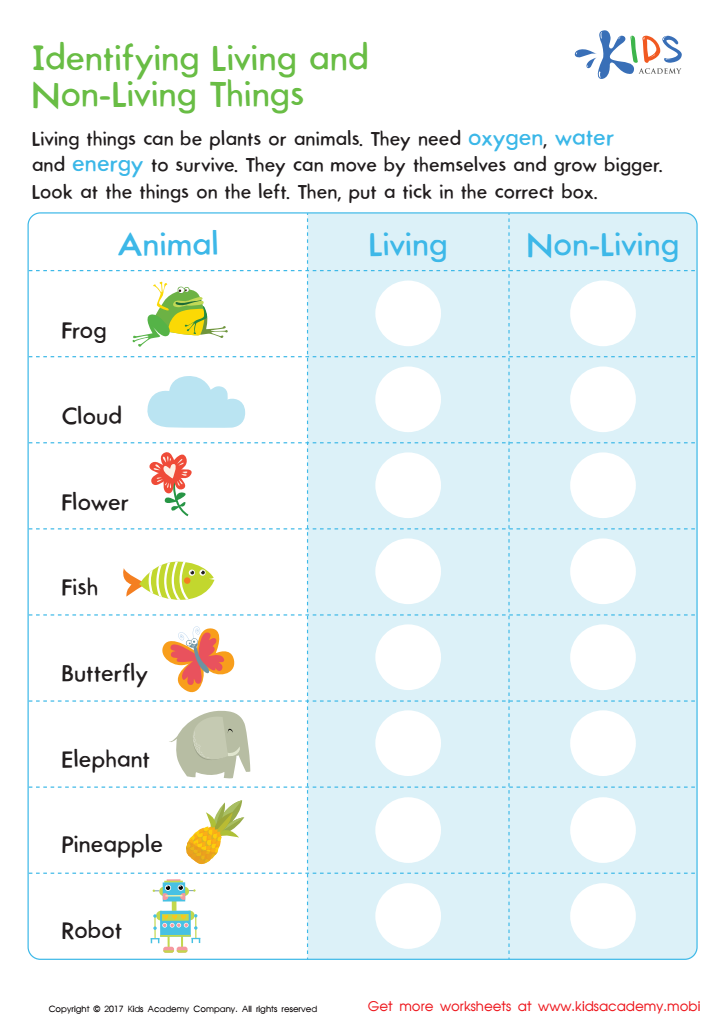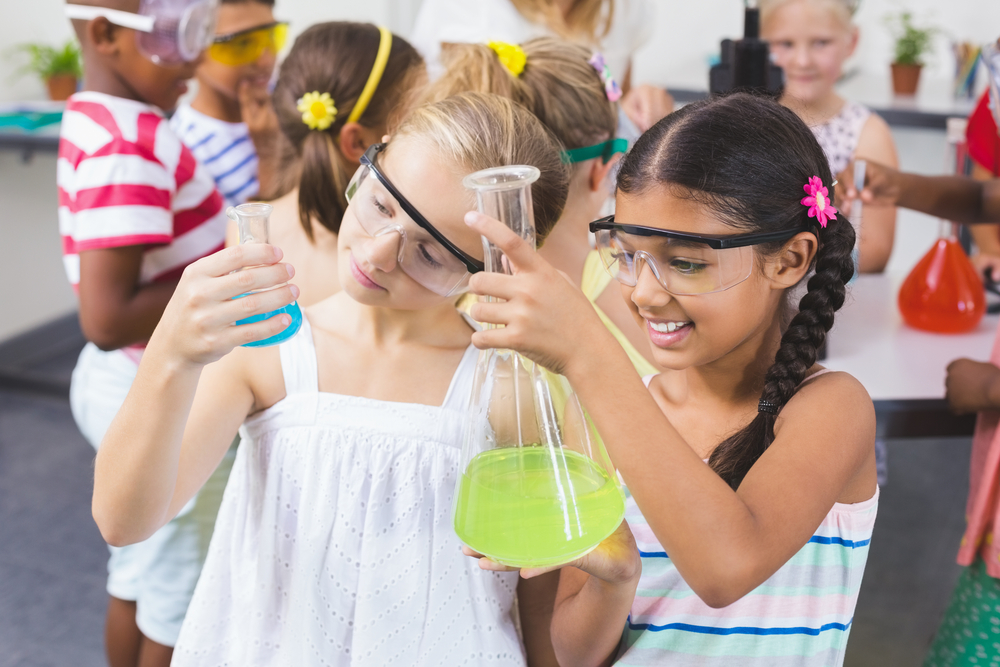Critical thinking development Science Worksheets for 6-Year-Olds
3 filtered results
-
From - To
Unlock your child’s full potential with our Science Worksheets designed specifically for 6-year-olds! These engaging, printable worksheets aim to nurture critical thinking and problem-solving skills in young learners. Each activity subtly introduces fundamental scientific concepts while challenging kids to observe, analyze, and draw conclusions. Perfect for homeschooling or supplementary learning, our worksheets make science fun and accessible. Instill a love for learning early on and watch as your child develops inquisitive thinking and a keen understanding of the world around them. Start their journey to becoming mini scientists today with our expertly crafted resources!


Reduce, Reuse, Recycle, Rethink Worksheet


Lights for Safety Worksheet


Identifying Living or Non–living Worksheet
Critical thinking development is fundamental for 6-year-olds as it lays the groundwork for future academic success and equips children with essential life skills. At this young age, children's brains are highly plastic, meaning they are incredibly receptive to new information and ways of thinking. Introducing critical thinking through science education can significantly benefit cognitive development, allowing them to ask questions, evaluate information, and solve problems systematically.
Parents and teachers should care about this for several reasons. First, early exposure to critical thinking helps children become independent thinkers who can approach problems with curiosity and creativity. In the context of science, this means encouraging children to make observations, ask "why" and "how" questions, and engage in experiments that require them to predict outcomes and analyze results.
Furthermore, science is a practical subject that allows hands-on learning. This engagement can foster a child's intrinsic motivation to learn and explore. Critical thinking in science also promotes social skills, as children often work together on projects, learn to communicate their thoughts, and respect different viewpoints.
Lastly, developing critical thinking skills at a young age can set the foundation for effective decision-making and resilience in tackling challenges, both in academic settings and in broader life situations. Thus, investing in critical thinking through science for young children is a crucial step in their holistic development.

 Assign to My Students
Assign to My Students






.jpg)












